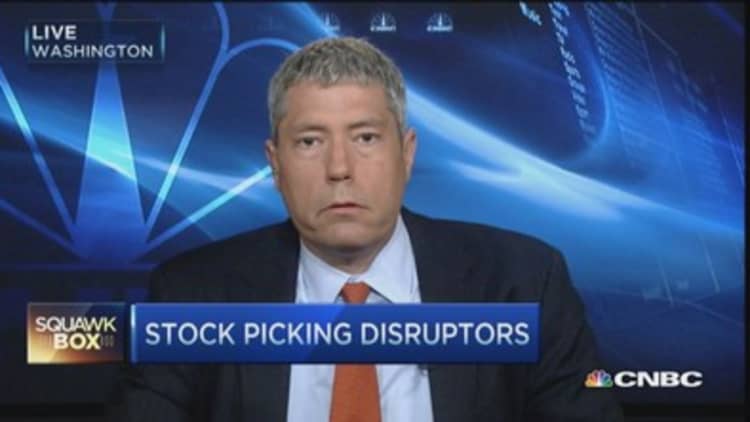Long before SoftBank lauched its $100 billion Vision Fund, and years ahead of the private equity and mutual fund rush to Silicon Valley, T. Rowe Price Group's Henry Ellenbogen saw the opportunity to write big checks to tech companies while they were still private.
He's now been investing in late-stage start-ups for a dozen years, providing capital and guidance for consumer businesses such as Twitter and GrubHub and business software vendors Workday and Atlassian, and then generally adding to his stake when they IPO.
Those bets have helped make Ellenbogen's $25 billion New Horizons Fund the top-ranked small-growth fund, according to U.S. News & World Report.
For his latest deal, announced on Thursday, Ellenbogen led a $90 million investment in PagerDuty, whose software helps technical staff at companies spot problems and respond to incidents such as customer complaints. The funding round values San Francisco-based PagerDuty at $1.3 billion.
Ellenbogen met PagerDuty CEO Jennifer Tejada through venture capitalist Marc Andreessen, who has worked with T. Rowe on numerous deals and whose firm, Andreessen Horowitz, was already an investor. Tejada traveled to Baltimore with Howard Wilson, the company's chief commercial officer, about a month ago to meet with Ellenbogen about a potential investment.
$100 million in annual recurring revenue
Ellenbogen told CNBC that he knew the product well because he hears of so many companies, start-ups in particular, that use it as a key piece of their infrastructure. It's part of a menu of providers that start-ups use to launch a company: They typically use Amazon Web Services for core infrastructure, add some Google tools, install Slack for communications, and buy products from Atlassian and GitHub (now owned by Microsoft) for their software teams. PagerDuty is right there on the list.
"This has become a start-up in a box," Ellenbogen said. "It's part of the roster of vendors you start with."
Founded in 2009, PagerDuty surpassed $100 million in annual recurring revenue earlier this year, said Tejada, a longtime industry executive who joined the company in 2016. Customers include Netflix, Spotify, Gap and eBay.
Prior to this funding round, PagerDuty had raised over $83 million from investors including Accel, Bessemer Venture Partners and Baseline Ventures. Tejada said she knew that, based on the company's traction and capital efficiency, it wouldn't take long to close a round, so she asked people in her network for names of later-stage investors who were effective at bringing value to the table.
"Henry's name bubbled to the top," Tejada said. "He has impeccable pattern recognition, good eyes and is a great operator himself." Wellington Management co-led the round with T. Rowe Price.
Even as PagerDuty grows rapidly, there's a bunch of competition from companies going after enterprise customers as well as start-ups. ServiceNow has built a $34 billion company by automating IT, and other companies are buying into the space. Splunk acquired VictorOps in July, and this week Atlassian bought OpsGenie.
Tejada said the fresh capital will be used both to expand the PagerDuty team, which is currently approaching 500 employees, and to grow geographically. The company recently opened a second headquarters in Toronto and also has operations in Seattle, London and Sydney.
As for Ellenbogen, he sees PagerDuty joining a portfolio of emerging tech companies that can continue to pick up steam before eventually going public. He said there are four companies in his fund's private portfolio that could debut in the second half of the year, including two that have publicly filed. One of those is ticketing site Eventbrite, which filed to go public last month. T. Rowe Price owns 6.8 percent of the company.
As of the end of 2017, according to the New Horizons Fund's latest annual report, Ellenbogen's group had invested $1.53 billion in 70 private companies since September 2009. Among that group, 40 had gone public or been sold and 30 were still private. The overall annual return was 40.9 percent, compared with an 8.2 percent average return for the Russell 2000 Growth Index, according to the report.
Ellenbogen said that his fund invests in five to seven private companies a year and that it's not slowing down even with more big-money investors, including SoftBank, jumping into the space.
"There are subtleties in the market, where certain parts are more expensive than others," Ellenbogen said. But, "we've found a lot of interesting things. We could do a lot more; we're just really limited by bandwidth," he said.



